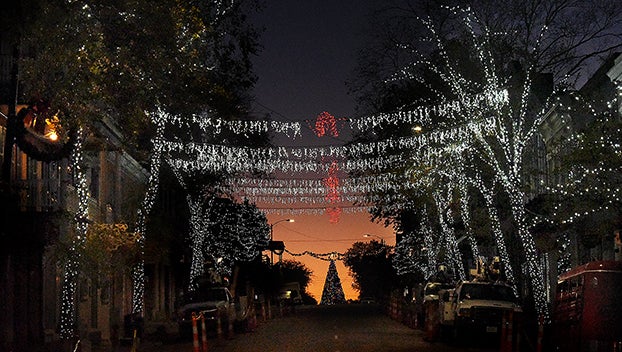Whittington files motion for new trial
Published 12:03 am Monday, May 28, 2012
VIDALIA — A motion for a new trial, or new judge ruling, and accusations of perjury against Concordia Parish District Attorney Brad Burget were filed Wednesday in federal court by Jim Whittington’s legal counsel.
In federal court on April 25, a jury of seven unanimously found that Sheriff Randy Maxwell did not maliciously prosecute Whittington in 2003.
In the civil lawsuit originally filed in 2008, Whittington claimed he was the victim of a law enforcement vendetta following his arrest for simple robbery, telephone harassment and stalking in 2003.
Whittington claimed those charges and criminal proceedings were trumped up because he ran a heated election campaign against Maxwell in the 2003 race for sheriff.
Maxwell defeated Whittington in the general election and won a runoff election against Glen Lipsey in 2003.
The newest court documents filed by Whittington’s attorney, Mitchel Evans II, state that a new trial, or new ruling by the judge, be granted because of jury confusion, the discovery of new evidence not available during the trial, witness perjury and the jury’s failure to consider evidence that was admitted and/or not contradicted by Maxwell’s attorney.
The discovery of new evidence and witness perjury are in reference to a DVD of Burget speaking at a political debate during the 2007 election for district attorney.
The new motions filed state that during his debate speech, Burget clearly addresses Maxwell’s direct involvement in Whittington’s prosecution and that those statements are in stark contrast to his testimony during the April jury trial.
“The sheriff wanted a felony conviction (against Whittington) because he didn’t want Mr. Whittington to be his opponent in 2007,” Burget said in his debate speech. “Well (I) stood up to the sheriff (Maxwell) and said, ‘No. I’m not prosecuting Mr. Whittington for a felony that he did not commit.’
“The sheriff wanted him convicted, and I would not do it.”
During the trial, Burget testified that the only conversations he had with Maxwell regarding Whittington’s prosecution were during a lunch outing.
“I had one meeting with Maxwell in his vehicle on the way to lunch,” Burget testified on the stand in April. “He was curious as to why I wasn’t trying the case. I told him I wasn’t sure about the case. He said I think it’s a felony; I said I think it’s a misdemeanor, sheriff, and that was the end of it.”
The new court filings state that Burget’s testimony perjury and modified solely to benefit Maxwell.
Burget said he is standing by his truthful courtroom testimony and was extremely upset to learn of the allegations against him.
“I’m personally offended by Mr. Evans for filing this motion and by Mr. Whittington for allowing him to do so,” Burget said. “I take it very seriously that someone would accuse me of such a heinous act.
“As an attorney, the only thing I have is my reputation, so I take it very seriously that someone is attempting to damage that.”
The other portion of the new motions filed state that, during closing arguments, Maxwell’s attorney, Tim Richardson, confused the jury regarding one of the elements needed to prove Whittington was maliciously prosecuted.
In order to prove Whittington was maliciously prosecuted, his legal counsel had to prove six different elements during the jury trial.
Presence of malice, damage to the plaintiff and bona fide termination of the criminal proceedings in favor of the plaintiff were among the six elements.
The new motions filed state that Richardson’s closing argument created jury confusion and created a tainted verdict.
Richardson’s closing argument state that since Whittington’s original case never went to trial and he was never found guilty or innocent, the bona fide termination element was not valid.
The new motions state bona fide termination does not require termination of defendant’s guilt or innocence and that Richardson’s mention of that created jury confusion.
Whittington’s attorney would not comment on the new motions filed, but said that Federal Judge Dee Drell, who heard the April case in the Western District Court of Louisiana in Alexandria, had 14 days to rule on the motions.
Whittington said he was confident in the motions his attorney’s and that he hopes to finally have closure in the matter.
“I was done wrong, and I’m not just going to give up. I’m going to continue to fight,” Whittington said. “Whatever it takes, I’m going to get it done.
“I’m not going to quit.”






